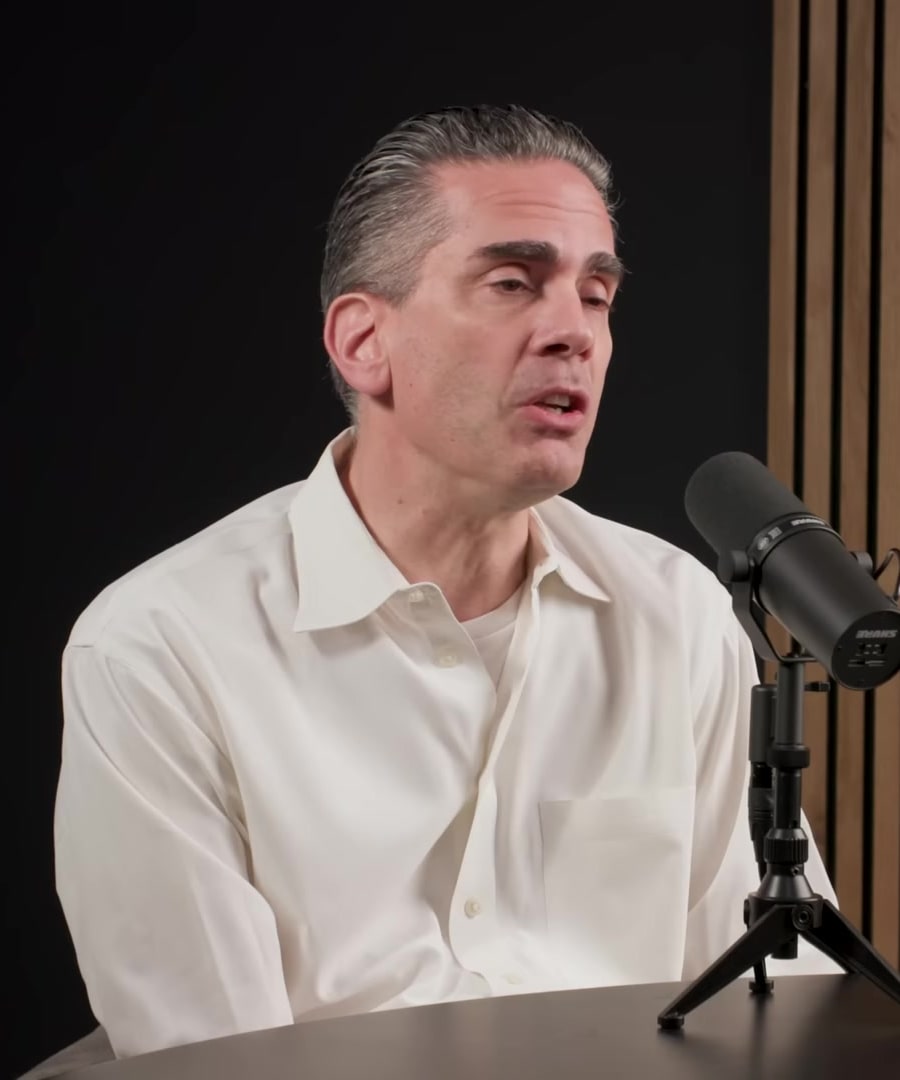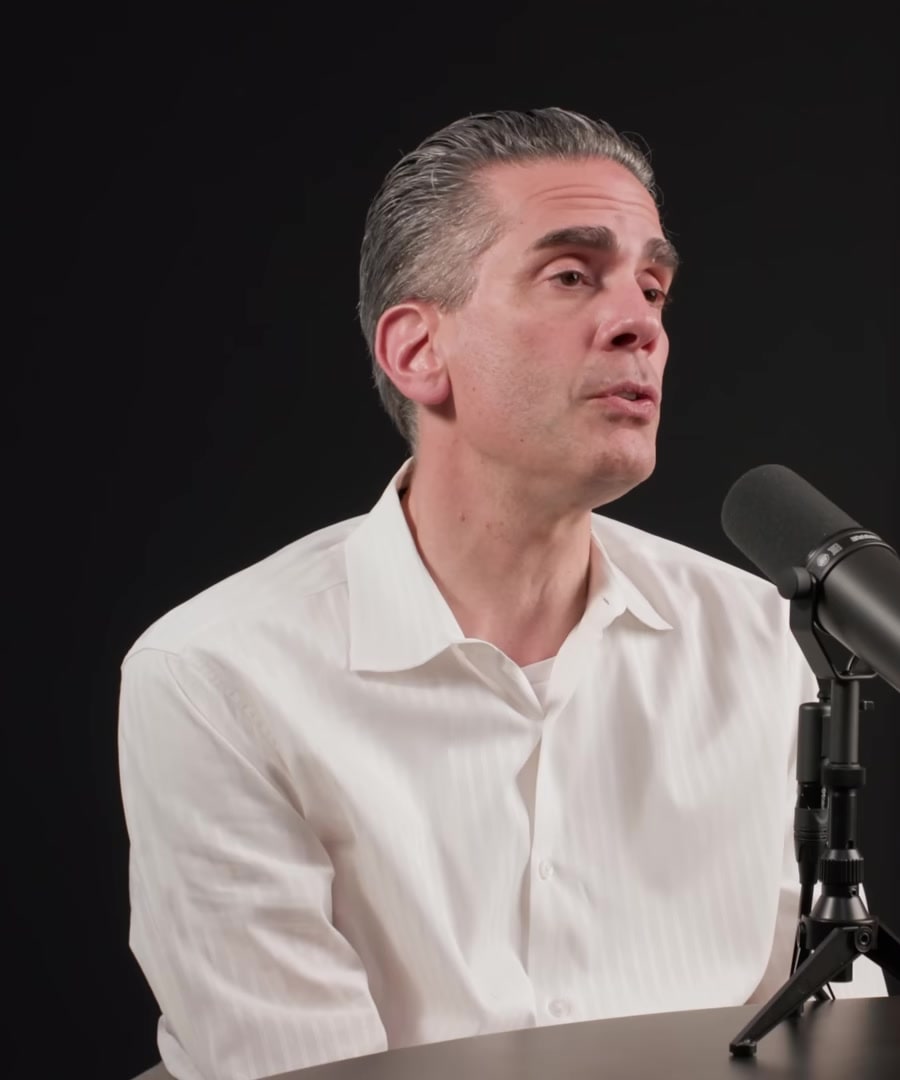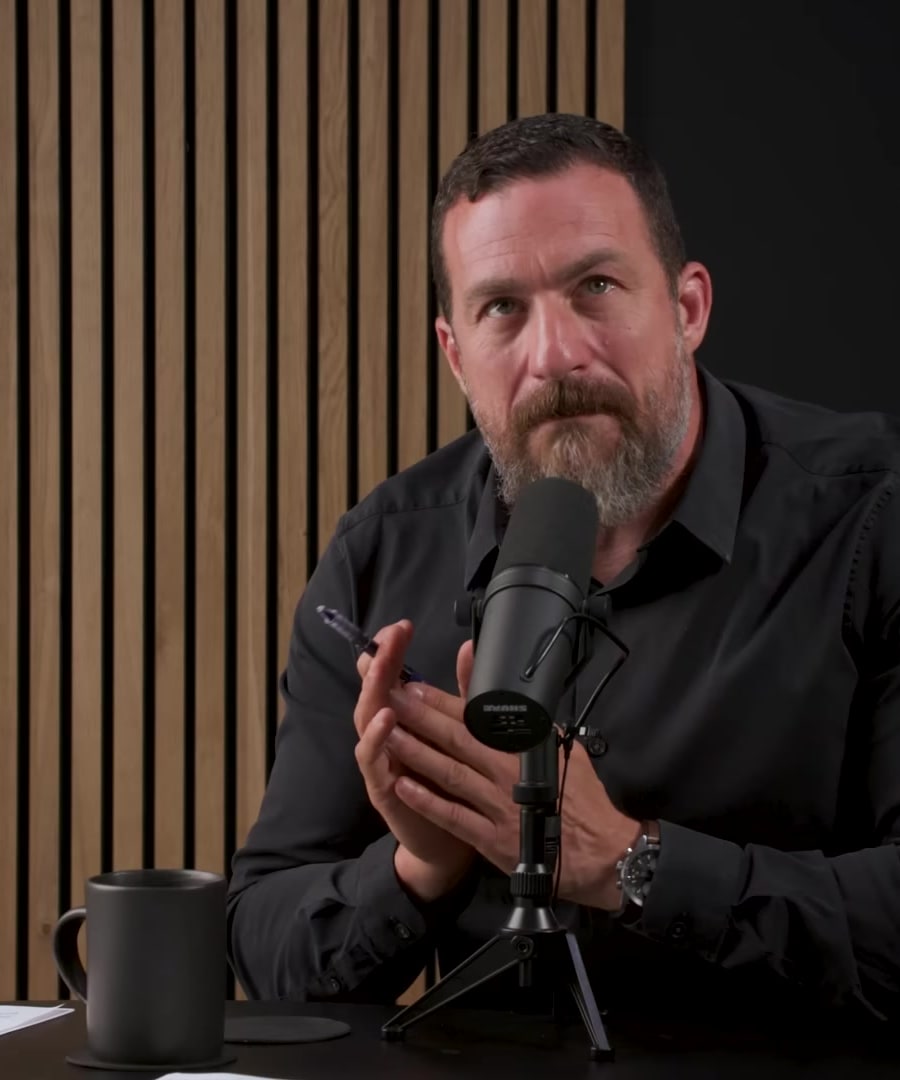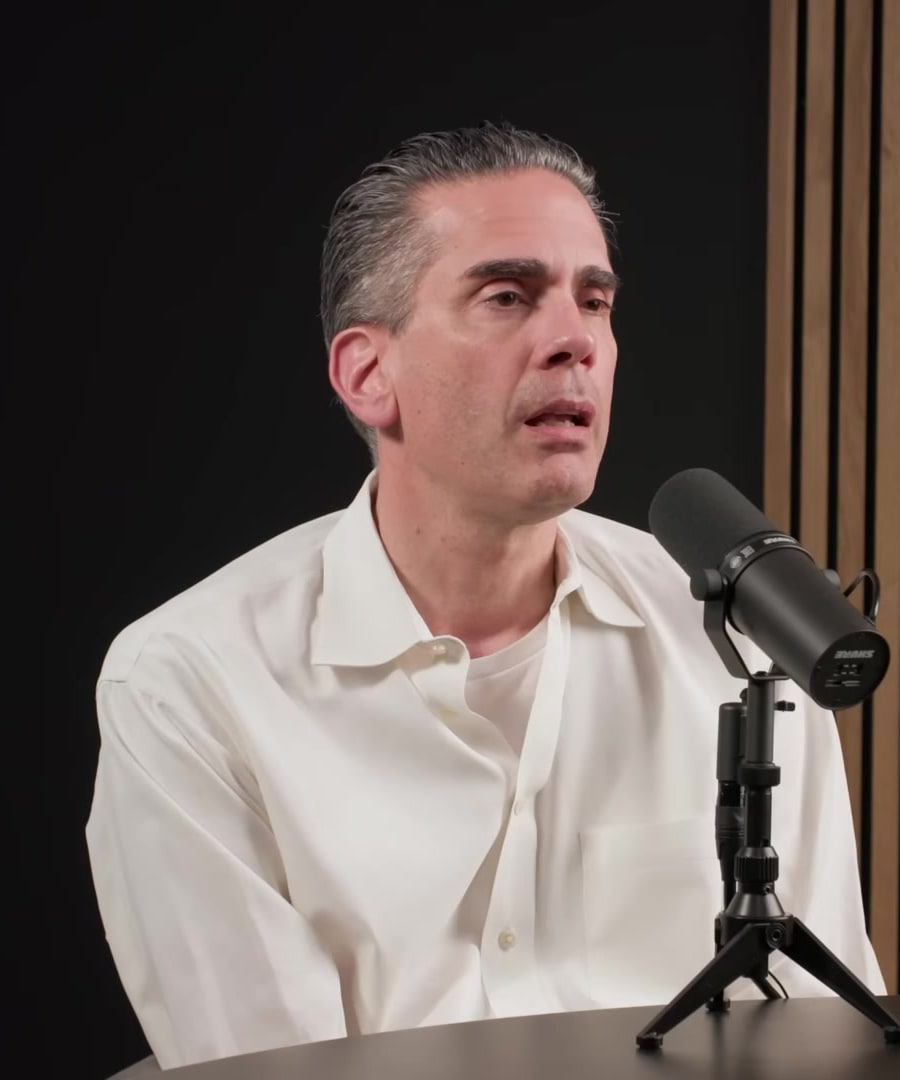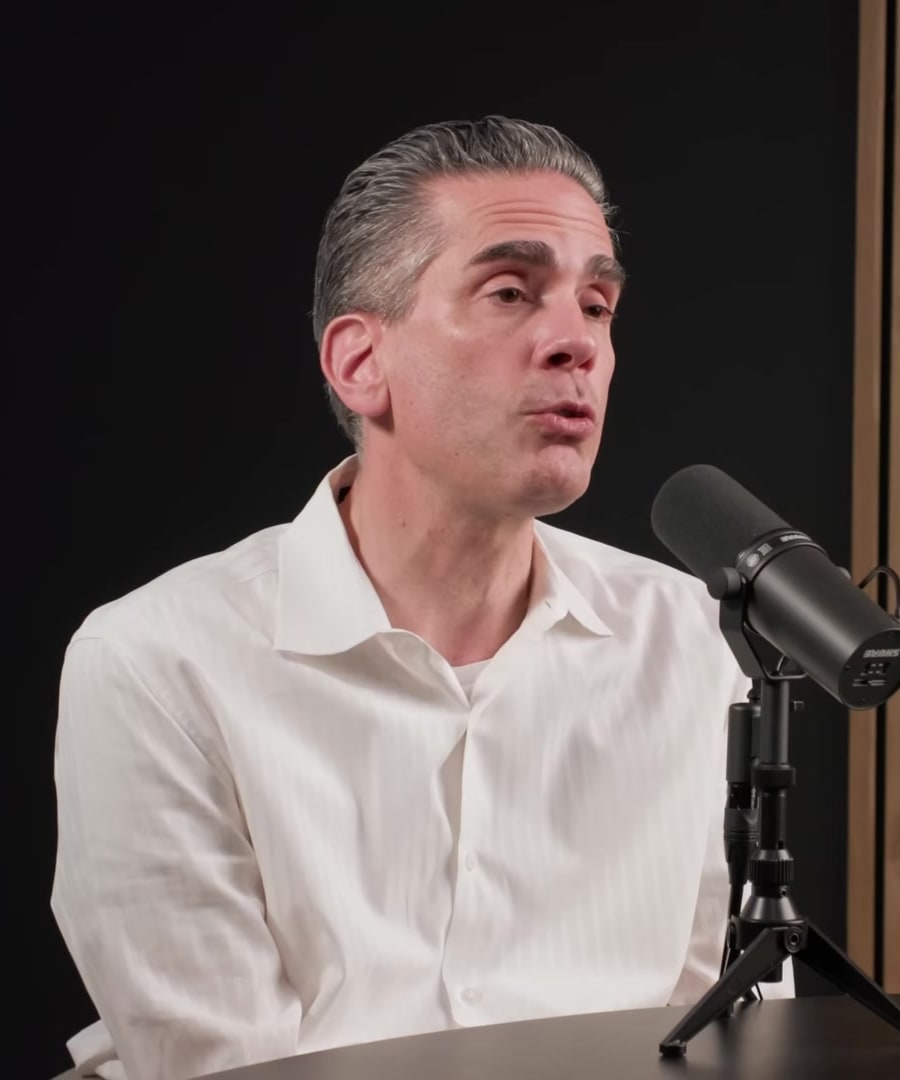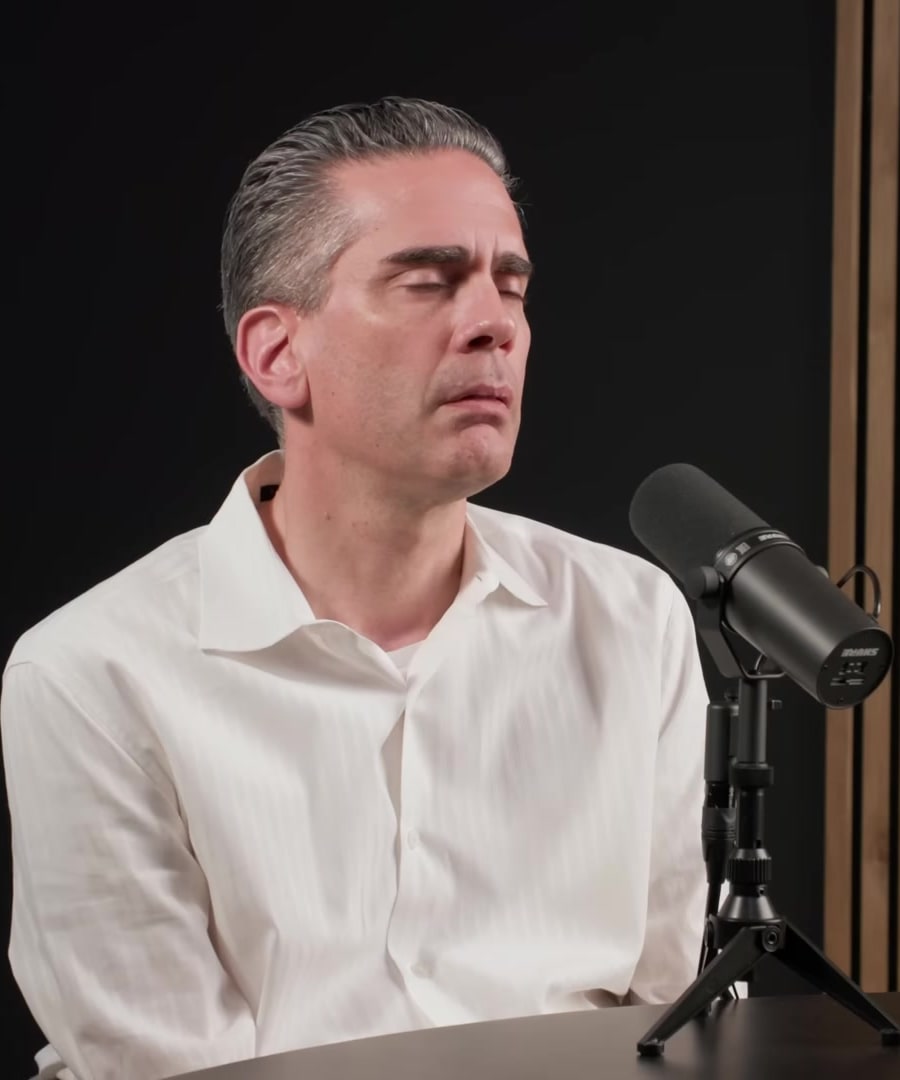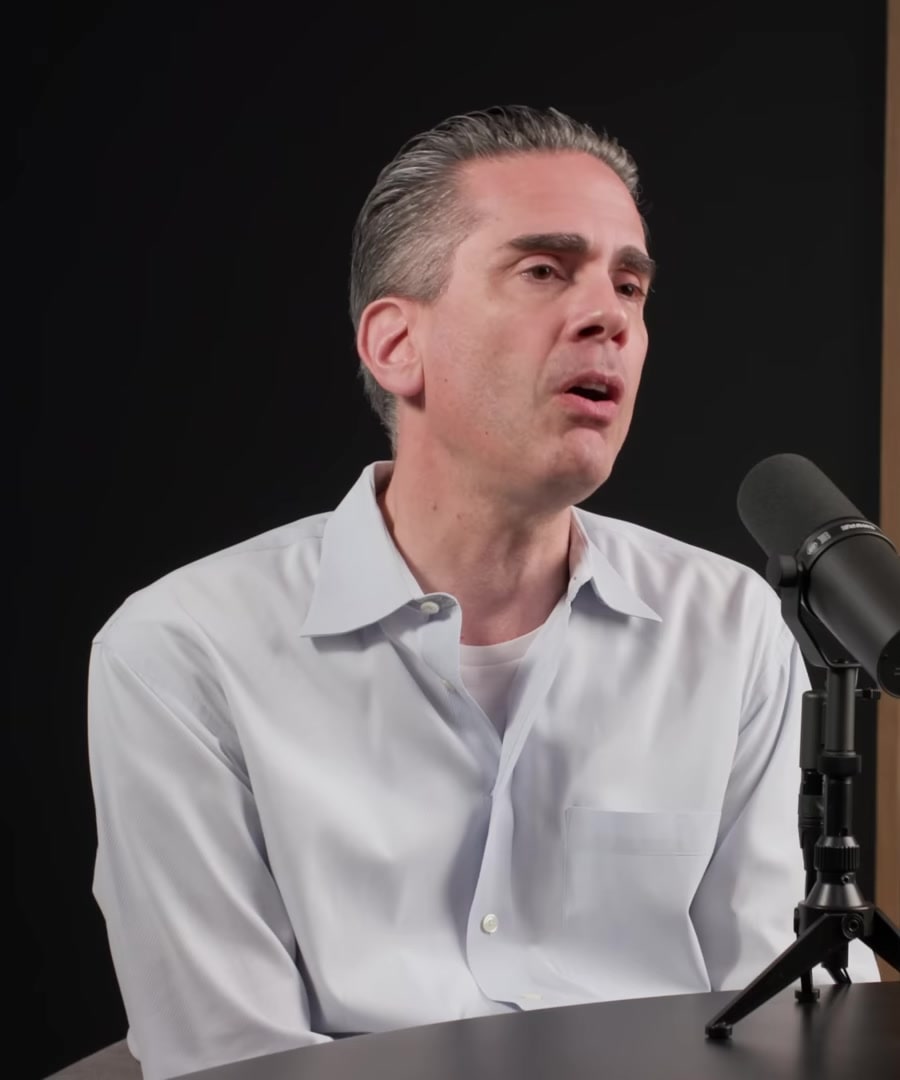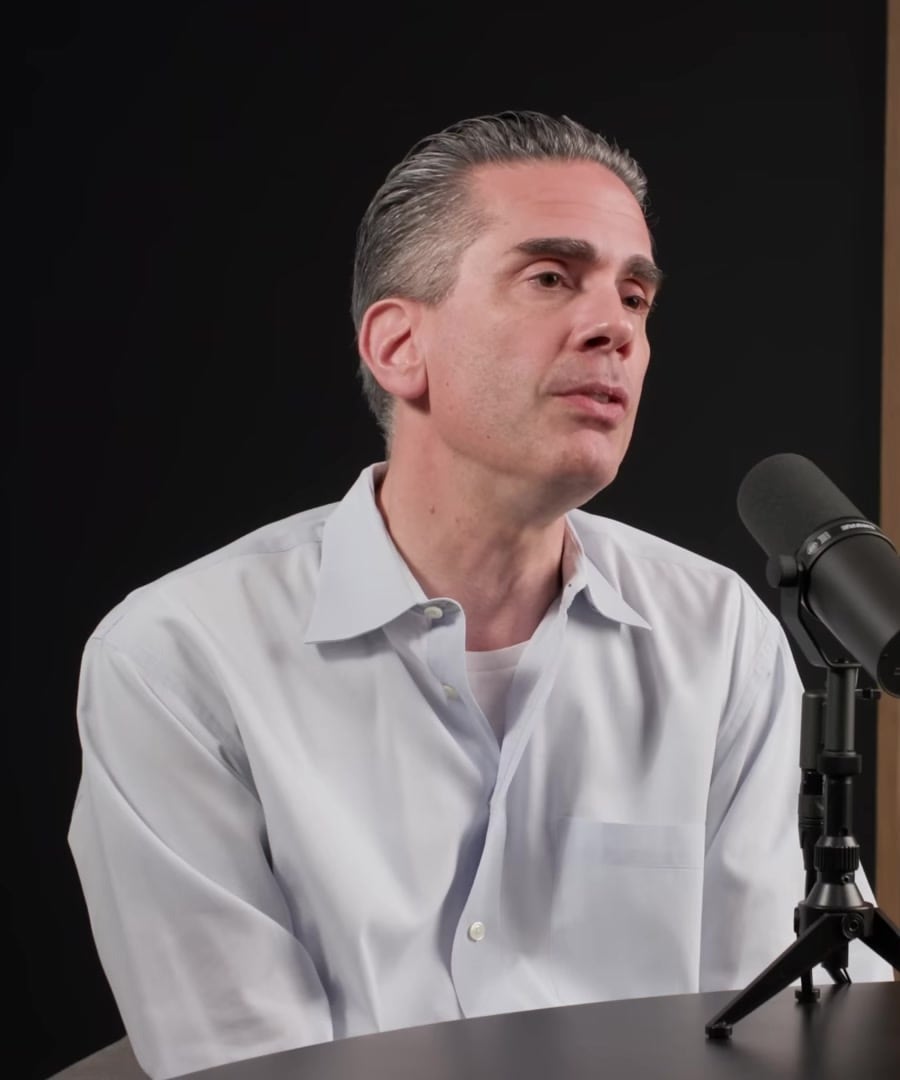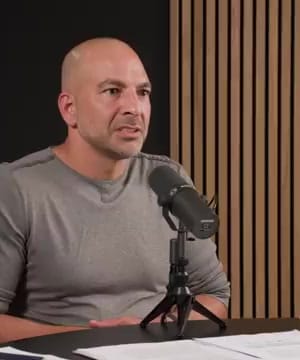Summarize Paul conti’s iceberg model
Sources:
Dr. Paul Conti's Iceberg Model, described throughout the series with Dr. Conti, is a metaphor for understanding the mind's structure and its impact on our thoughts, feelings, and behaviors. Most of our mental processing is unconscious—just like the largest part of an iceberg is submerged below the surface. This unconscious component generates the majority of our experiences, without our conscious awareness 1.
The Iceberg Model features several elements 2 3 4:
- Unconscious Mind: A vast and intricate "supercomputer" processing a multitude of thoughts and actions every second.
- Conscious Mind: The smaller, visible part of the iceberg representing what we're actively aware of.
- Defense Mechanisms: Unconscious protective strategies that extend from the unconscious mind, affecting our conscious experiences.
- Character Structure: Encompasses the conscious and unconscious mind, along with defense mechanisms—likened to a nest where the ‘self’ resides and grows.
Dr. Conti emphasizes that by exploring our unconscious, we can become aware of how it influences our conscious mind in both positive and negative ways. This can involve recognizing and altering our defense mechanisms and understanding the nonobvious aspects of our interactions 5 2.
The goal is to foster a healthy character structure, or "nest," from which a constructive sense of self can develop, leading to empowerment, gratitude, agency, humility, and eventually, inner peace and contentment 6.
RELATED QUESTIONSTell me more about Dr. Paul Conti's theories.
Sources:
Dr. Paul Conti shares various theories throughout his appearances on the . His discussions illuminate different aspects of mental health, trauma, and the interplay of the conscious and subconscious mind. Key points include:
-
The Supercomputer of the Unconscious Mind: Dr. Conti likens the unconscious mind to a biological supercomputer which is continuously at work beneath our conscious awareness. This part of our mind processes millions of things in every moment, drawing from biological predispositions and learned patterns. He believes that focusing on this complex, submerged part can help us better understand and ground our conscious experience 1.
-
Change in Oppressors: He talks about the possibility of profound change, even for those who have been abusive or oppressive. By critically examining themselves, their past, and their behaviors, individuals who have oppressed others can potentially transform and achieve redemption 2.
-
Agency and Gratitude: He argues that approaching life with agency and gratitude can lead to a state of health and goodness. Dr. Conti proposes that these elements reinforce a generative drive that helps protect against life's adversities and strengthens self-knowledge 3.
-
Compatibility and Generative Drives: In the context of relationships, he suggests that compatibility is less about surface-level factors and more about the alignment of generative drives. He emphasizes the importance of looking at the potential within us that we build and alter with each moment 4.
-
The Three Drives: Dr. Conti reframes our understanding of human drives. Beyond the commonly considered survival and reproductive drives, he includes what he calls the generative drive. This drive transcends self-interest and focuses on creating something better, whether directly related to oneself or not. He underscores the importance of how these drives are shaped by genetics and formative life experiences 5.
-
Short-Sightedness in Treatment: He criticizes the prevalence of short-term solutions in mental health treatments, like reflexive prescription of medications without considering long-term consequences on individual lives and society at large 6.
-
Understanding Trauma: The importance of recognizing trauma, both in ourselves and others, and how it can be stealthily pervasive. Dr. Conti emphasizes the significance of therapy—both talk therapy and drug therapy—as well as self-therapy for those who may not have access to professional help. He delves into how therapy can be a path to healing and growth 7.
Each topic evidences Dr. Conti's integrative approach to psychiatry, where the complexity of human experience is acknowledged and addressed with depth and compassion.
RELATED QUESTIONS-
Does metformin support longevity
Sources:
The potential of metformin as a geroprotective agent, which targets the hallmarks of aging rather than specific diseases, has been a topic of discussion. A study from 2014 by Bannister and colleagues initially sparked interest by indicating people with type 2 diabetes on metformin had a decreased mortality rate compared to matched controls without diabetes. This study's methodology included "informative censoring," where only patients strictly adhering to their metformin regimen were considered in the final analysis, presenting some limitations to the study 1.
Further studies aimed to reassess these findings. Dr. Peter Attia discusses on the a paper titled "Reassessing the Evidence of a Survival Advantage in Type 2 diabetics Treated with Metformin Compared with Controls Without Diabetes". The main point of discussion was whether metformin offered an advantage that could negate the disadvantage of having type 2 diabetes. The results made clear that within the studied population, no such advantage was observed, as people with type 2 diabetes on metformin still had a statistically higher mortality rate compared to those without diabetes, although it remains unclear if metformin provided any benefit 2 3.
Dr. Attia also explored different potential benefits that metformin could provide besides lowering blood glucose, such as being a weak inhibitor of mTOR, reducing inflammation, and affecting senescent cells, which might confer an advantage and explain previous findings of reduced mortality in diabetic patients on metformin 1.
Currently, the evidence is mixed, and there is a need for more definitive studies like the TAME trial, which is examining non-diabetics taking metformin for their potential disease outcomes. This would provide a clearer picture of metformin's effects on longevity, which might alter recommendations on its use 4.
Overall, while metformin is widely prescribed for type 2 diabetes, its efficacy as a geroprotective agent remains uncertain and is still under investigation.
RELATED QUESTIONSWhat are other known geroprotective agents?
Sources:
Apart from metformin, other geroprotective agents discussed by and include rapamycin, NAD, and NR (nicotinamide riboside). These drugs aim to protect against aging by targeting the fundamental biological hallmarks of aging, rather than focusing on specific diseases 1. Hallmarks of aging include reduced autophagy, increased cell senescence, changes in nutrient sensing, protein instability, genomic instability, and epigenetic alterations 2.
Rapamycin, in particular, has been highlighted as a significant geroprotective agent due to its role in inhibiting mTOR, a pathway involved in aging. The Interventions Testing Program (ITP), a gold-standard animal study, demonstrated that when rapamycin was given late in life to mice, they exhibited an extended lifespan 3.
Peptides, which can change gene expression and influence pathways for hormone production, are also part of the conversation in terms of longevity and self-augmentation fields. However, the use of such compounds should be managed with caution, as they can have varying effects, potentially promoting tumor growth if used improperly 4.
It's important to note that while these agents show potential, their effects on human longevity are complex and still being researched to fully understand their roles in geroprotection.
RELATED QUESTIONSSummarize 270 ‒ Journal club with Andrew Huberman: metformin, power of belief, & how to read scientific papers
Sources:
In of "The Peter Attia Drive Podcast," and host discussed various topics, including metformin, the power of belief, and strategies for reading scientific papers. Here's a summary of the episode's main points:
-
Metformin's Geroprotective Potential: They explored the geroprotective potential of metformin and the importance of randomized control trials to truly understand its effects on health and lifespan. Additionally, Attia shared insights on the limitations of epidemiological studies on metformin due to a lack of controlled conditions 1.
-
Impact of Beliefs: Huberman highlighted an experimental paper demonstrating how beliefs about the drugs we take can affect us at a biological level, potentially influencing the drug's impact beyond subjective experiences. This discussion was spurred by the concept of belief effects and their distinction from the placebo effect 2.
-
Wild Experiments: Huberman expressed delight in discussing unique and intriguing experiments, such as the effects of nicotine and its perceived dosage on brain activation and performance in tasks. They talked about the scientific process, experimental design, and fMRI technology 3.
-
The Placebo Effect: Attia and Huberman delved into the placebo effect and how it can significantly impact individuals who might experience side effects based on their beliefs. They also shared amusing anecdotes from medical school, highlighting how students might overemphasize certain diseases or conditions 4.
-
Scientific Literacy: The podcast aimed to enhance listeners' abilities to interpret scientific papers critically, encouraging a more informed understanding of research findings and their implications.
-
The TAME Trial: A topic of discussion was the Targeting Aging with Metformin (TAME) trial, an important study designed to assess the effects of metformin on aging more systematically and conclusively 5.
The episode covered an array of subjects, rooted in both personal experience and scientific literature, with a focus on the intersection of medicine, belief, and scientific inquiry.
RELATED QUESTIONS-
Summarize Mental Health Toolkit: Tools to Bolster Your Mood & Mental Health
Sources:
The with focuses on a variety of strategies and practices to improve mood and mental health. Here are the main takeaways from the episode:
-
Social Connection: The importance of social connection is emphasized, with the suggestion to limit interactions that cause stress and to foster relationships that leave us feeling rejuvenated and positive 1.
-
Mood Enhancement: Techniques like regulating breathing and reflecting on emotional states can improve overall mood and mental health not just momentarily, but also long-term 2.
-
Emotion Regulation: Investigating the interplay between the physiological experiences of emotions and the regulation of mood, with a focus on the brain's role as a 'prediction machine' and its ability to regulate our 'brain-body budget' for optimal mental health 3.
-
Nutrition: The critical role of nutrition in mental health is discussed, emphasizing the need for quality calories from non-processed or minimally processed food sources and the importance of macronutrients and micronutrients 4.
-
Light Exposure: The benefits of regular exposure to sunlight or bright light sources for mood and mental health are explained, including their role in regulating the circadian clock and the best practices for getting the most effective light exposure 5.
Various tools and practices are offered to help understand and foster emotional well-being, stress control, and an enhanced neuroplastic state. The episode aims to provide listeners with actionable advice to improve mood and mental health using evidence-based methods.
RELATED QUESTIONS-
Summarize Mental Health Toolkit: Tools to Bolster Your Mood & Mental Health
Sources:
In the , discusses various strategies to enhance mood and mental health, incorporating six main pillars:
-
Social Connection: Emphasizing the need to limit stressful social interactions and enhance ones that bring joy and rejuvenation. Interactions with others should leave us feeling energized rather than drained 1.
-
Emotion Regulation: Describing the importance of reflecting on our emotional states and recognizing the relationship between how we feel in our body and our mood. Using breath control and self-reflection to regulate emotions can boost overall mental health 2.
-
Nutrition: Outlining the necessity of consuming quality nutrition from minimally processed food sources for mood and mental health, including macronutrients like proteins, fats, and carbohydrates 3.
-
Light Exposure: Highlighting the beneficial impact of morning sunlight or bright light on mood and mental health by regulating the circadian clock. If sunlight is inaccessible, the use of bright light sources, such as SAD lamps, is recommended 4.
-
Emotion Regulation: Investigating the interplay between physiological experiences of emotions and the regulation of mood in regard to the brain's ability to regulate resources effectively 5.
offers an in-depth analysis of these elements and their interconnections, suggesting that daily investments in these pillars build up a "brain-body budget," thereby enhancing mental health and mood resilience. The episode aims to arm listeners with practical tools for achieving and maintaining good mental health.
RELATED QUESTIONS-
Summarize Paul conti’s iceberg model
- RELATED QUESTIONS
Tell me more about Dr. Paul Conti's theories.
- RELATED QUESTIONS
Does metformin support longevity
- RELATED QUESTIONS
What are other known geroprotective agents?
- RELATED QUESTIONS
Summarize 270 ‒ Journal club with Andrew Huberman: metformin, power of belief, & how to read scientific papers
- RELATED QUESTIONS
Summarize Mental Health Toolkit: Tools to Bolster Your Mood & Mental Health
- RELATED QUESTIONS
Summarize Mental Health Toolkit: Tools to Bolster Your Mood & Mental Health
- RELATED QUESTIONS

